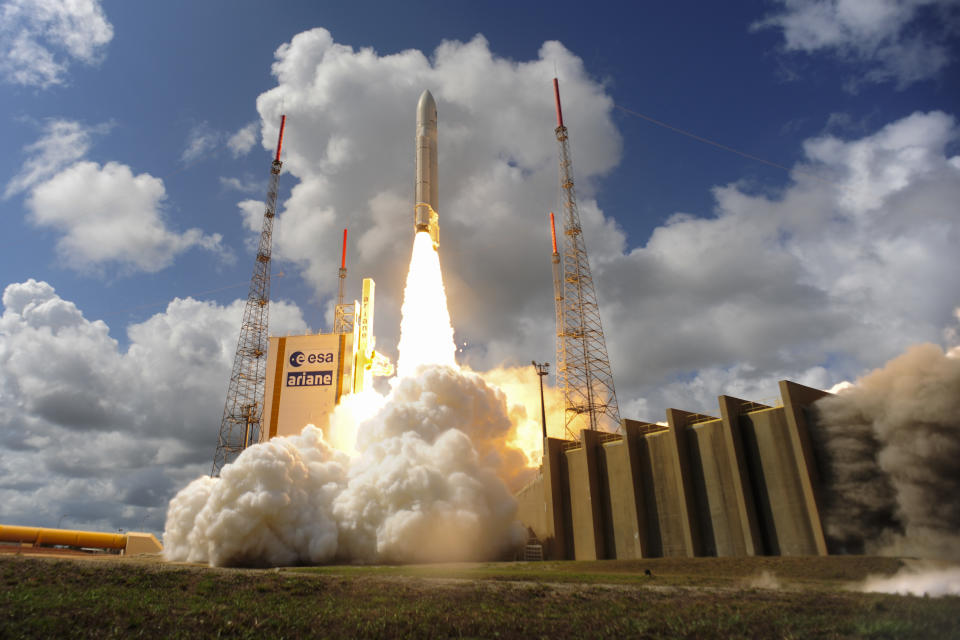UK aerospace industry already being frozen out of big deals amid Brexit uncertainty

British aerospace firms are already being frozen out of lucrative contracts because of Brexit uncertainty, MPs have been told.
Future investment in and by UK’s £31bn industry has been left in a “holding pattern” as companies wait to see what deal can be hammered out with the European Union.
And the prospect of a no-deal scenario would be “chaotic” for the industry, the Business Select Committee has been told.
MORE: Bankers promised special post-Brexit travel deal
Leading figures from the industry issued grim warnings to MPs of the continuing impasse over the stalled Brexit talks – and for the potential impact of the UK quitting the EU in March 2019.

Simon Henley, president-elect of the Royal Aeronautical Society, said the UK had a strong presence and a rich history within the European-wide aerospace industry.
He cited the joint work undertaken on Galileo, Europe’s own global navigation satellite system.
“In Galileo in particular, where we have been very successful up to date, we have had companies now reporting to us they are being excluded from bidding for contracts,” he told MPs.
“Although membership of the European Space Agency is not part of the discussions, many of the contracts are EU-funded, and it’s a requirement that companies that bid for contracts are part of an EU country, so we are already seeing contracts being turned away from UK industry because of the [Brexit] uncertainty.”
MORE: EU agencies will relocate to Paris and Amsterdam in first Brexit shift
Paul Everitt, chief executive of aerospace industry group ADS, said firms are having to make investment decisions based on how they think Brexit could affect them.
For example, companies working on European space projects such as Galileo, have to indicate where they would locate their supply chain after Brexit during the bidding process, he said.
“At the moment, and excuse the pun, everyone’s in a bit of a holding pattern, because they are trying to sweat their assets for as long as possible before they commit to new investment,” he said.
“They would like to have an understanding of what the world is going to look like because they’ll be making investment decisions that have a 10 to 20-year lifespan,” he added.
Everitt went on: “We face very significant concerns, and distress, around what our future trading relationship is going to be with the EU, because… a third of our exports, from a UK perspective, are heading into mainland Europe.
“In the absence of an implementation phase, the only thing that’s certain at the moment is the most extreme, which is, we leave without any kind of deal…
“No deal would be the worst possible outcome, from an industry point of view. We believe that would be chaotic, and unhelpful for this particular sector, and a number of others.”
The UK aerospace industry is reckoned to be the fourth largest in the world, employing more than 95,000 people and generating a turnover of £31 billion in 2016. Nearly 90% of what the sector produces is exported.
It contributes almost £9bn to the UK economy each year, according to official figures.
Katherine Bennett, senior vice president, Airbus UK, told MPs: “The most important thing is our sites remain productive and competitive… Every single site in Airbus, whether it’s in the EU or outside the EU has to compete for every single piece of investment…
“I have to say, Brexit puts an extra burden on us [in the UK].”

